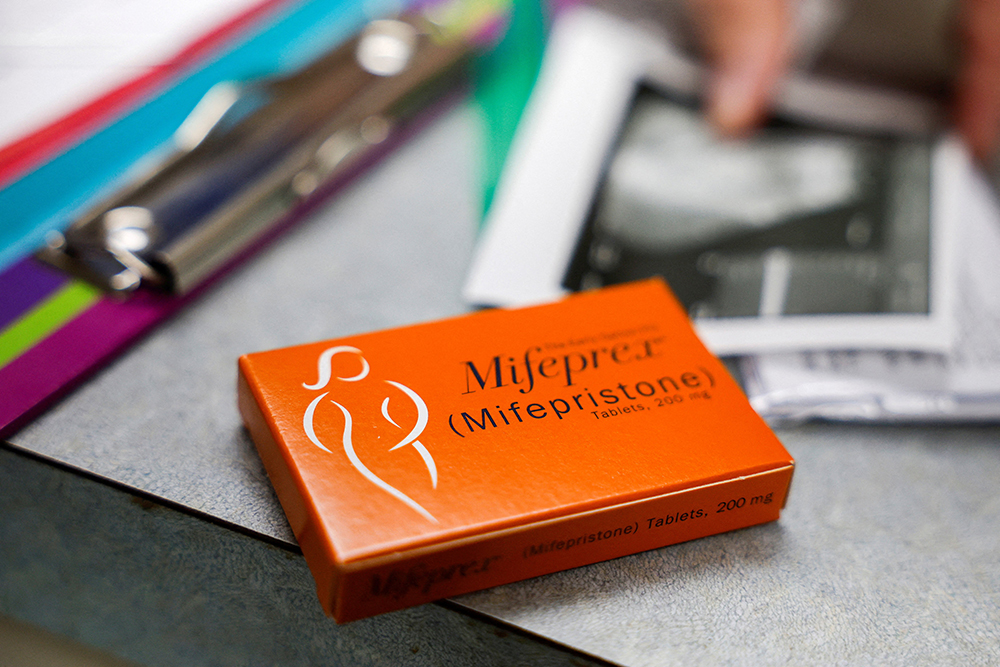
WASHINGTON — In a two-hour hearing on May 17 looking at the U.S. Food and Drug Administration’s decades-old approval of an abortion pill, federal judges seemed to have a harsher line of questioning for attorneys for the federal government and the drug maker, indicating they might be sympathetic to those challenging the drug’s availability.
A panel of three judges with the 5th U.S. Circuit Court of Appeals in New Orleans heard oral arguments about whether a lower court was right to block access to the drug mifepristone.
Attorneys for the Justice Department and the drug’s manufacturer argued against blocking access to the drug, while challengers, a group of medical professionals who oppose abortion, said the FDA approval should be revoked because it was not based on scientific evidence. They are also opposed to FDA changes in recent years to the pill’s availability, allowing it to be sent by mail and expanding who is eligible to get it.
The judges, appointed by Republican presidents, stressed that the FDA wasn’t above judicial scrutiny.
As Circuit Judge James Ho put it: “We are allowed to look at the FDA just like we’re allowed to look at any agency. That’s the role of the courts.”
The judges also disputed arguments by Justice Department attorneys that the challengers of the FDA approval of the abortion drug did not have the legal right to challenge that approval.
The case looks back at a ruling in April by U.S. District Judge Matthew Kacsmaryk, who sided with those challenging the drug and suspended its FDA’s approval. The Justice Department filed an emergency appeal of that order to the 5th Circuit.
In an emergency order, a three-judge panel said the drug’s initial approval should not be revoked but agreed with Kacsmaryk, a Texas judge, that the challengers were likely to win on other claims, such as the drug’s availability by mail and a provision that allowed the pills to be prescribed to women at up to 10 weeks of pregnancy instead of the previous seven weeks.
In late April, the Supreme Court put the lower court rulings on hold pending appeals, essentially leaving access to the abortion pill unchanged for the next several months.
The initial case, in Texas, was filed by the group Alliance for Hippocratic Medicine on behalf of itself and member groups such as the Catholic Medical Association, the Christian Medical and Dental Associations, and other pro-life groups represented by Alliance Defending Freedom, a religious liberty law firm.
The group claims the FDA “ignored the potential impacts of the hormone-blocking regimen on the developing bodies of adolescent girls” and disregarded evidence that chemical abortions cause more complications than surgical abortions.
A decision on the most recent appeal is expected in the upcoming weeks or even months. All eyes will be on it since it is the first major abortion case since Roe v. Wade was reversed last year by the Supreme Court. Whatever this court rules, the opposing side will likely appeal to the Supreme Court.
This idea was mentioned in the May 17 hearing when Ho asked the Justice Department attorneys: “Is the FDA intending to follow whatever this court decides and obviously subject to Supreme Court review?”
“Absolutely,” responded Sarah Harrington, a Justice Department attorney. “Whatever this court decides may be continued to be stayed, pending Supreme Court review.”
Another aspect of the FDA challenge is how the agency has made mifepristone available by mail.
Challengers say the FDA broke the law by doing this, referring to a law passed by Congress in 1873 called the Comstock Act, which banned the mailing of “indecent” materials such as pornography but also birth control and abortion-inducing drugs.
The Justice Department attorneys have said that this 150-year-old law is not relevant to this lawsuit because the FDA is not charged with enforcing the criminal statute.
Another major challenge to the FDA’s approval of mifepristone is that the method used to approve the drug was aimed at dealing with an “illness,” which the challengers stress that pregnancy is not.
Challengers of the abortion drug have also said the drug is not safe, pointing out examples of doctors having to care for patients who suffered medical emergencies after taking mifepristone.
“This case is not about ending abortion, it’s about ending a particularly dangerous type of abortion,” said Erin Hawley, senior counsel for Alliance for Defending Freedom, arguing before the 5th Circuit.
